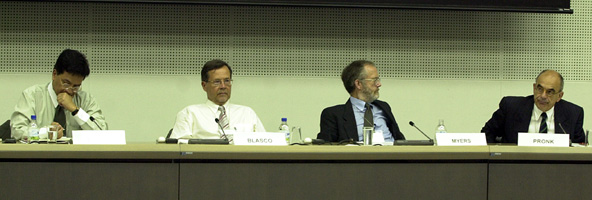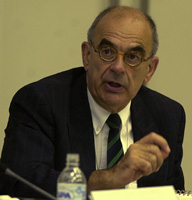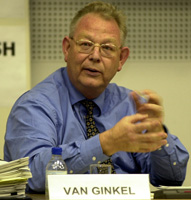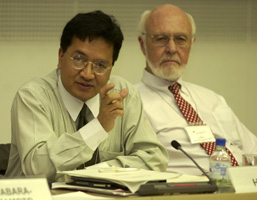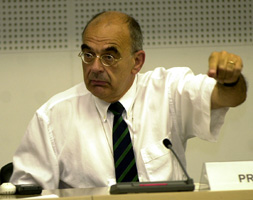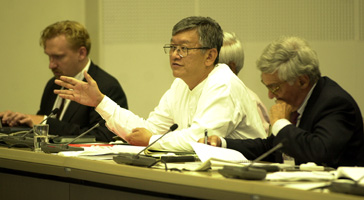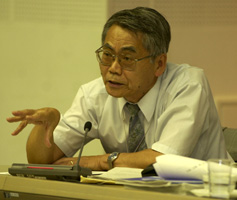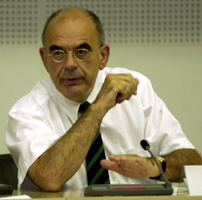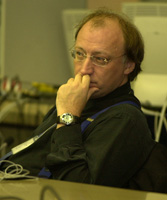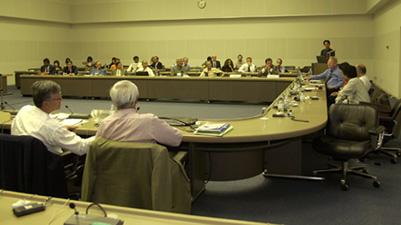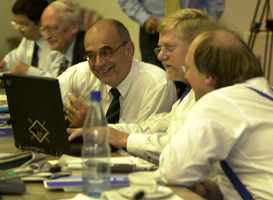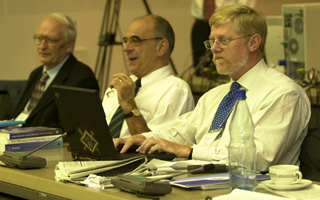 |
 |
| World
Summit on Sustainable Development (WSSD) International Eminent Persons
Meeting on Interlinkages Bridging Problems and Solutions to Work Towards
Sustainable Development |
|
|
|
Highlights from Tuesday, 4 September (Click
here for photos from the Working Groups)
|
|
Working Group Chair Presentations during the Final Plenary |
|
Moderator Cielito Habito, Working Group 2 Chair Delmar Blasco Working Group 1 Chair Jan Pronk, |
|
|
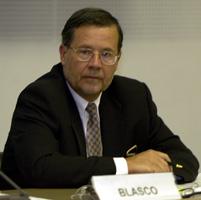
Working Group 2: Linkages between MEAs
: The Chair's conclusions, inter alia: note that MEAs are an evolving process and encouraged reviews on an ongoing basis; suggest that the WSSD recommend universal membership in all MEAs; recommend that MEA negotiations include major groups and stakeholder consultations; suggest that MEAs be used as instruments of sustainable development by integrating them fully into socioeconomic development planning; and recommend that MEA Parties fully operationalize their treaty obligations. Based on the discussions in the group, the conclusions suggest the clustering of conventions into five clusters, conventions related to: biodiversity; oceans and seas; freshwater, forests and lands; the atmosphere; and chemicals and hazardous waste. |
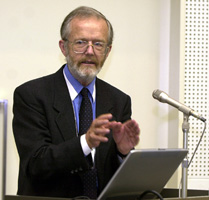
Working Group 3: Strategies for Sustainable Development
|
|
Panel Discussion: Global Environmental Governance and the Future of Sustainable Development |
|
Hans
van Ginkel, Rector, UNU, Schiko Kuwabara-Yamamoto, Executive
Secretary, Basel Convention Secretariat, Panel Chair Cielito Habito,
University of the Philippines at Los Banos, John Sewell, Senior
Scholar, Woodrow Wilson International Center for Scholars, Hafiz
Pasha, UN Assistant Secretary General, Assistant Administrator and
Director of the Regional Bureau for Asia and the Pacific, UNDP, and
Frank Loy, Former US Under Secretary of State for Global Affairs
|
|
|
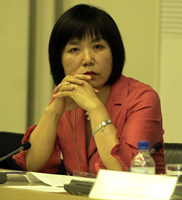 |
|
|
|
|
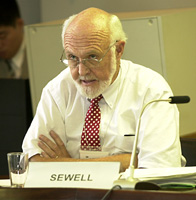 |
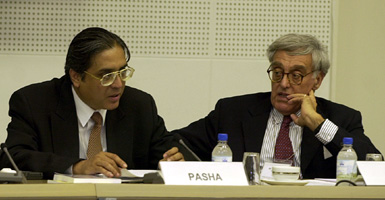 |
|
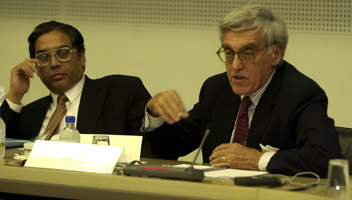 |
|
In closing the panel discussion, Chair Cielito Habito, University of the Philippines at Los Banos (cfhabito@mozcom.com), highlighted the need to explicitly address the expectations and products to come out of the WSSD. He also stressed the success of partnerships involving different stakeholders stemming from the Rio Summit and the need for their further enhancement in Johannesburg. |
|
Concluding Segment |
|
Jan
Pronk
challenged participants to develop workable proposals for the WSSD
|
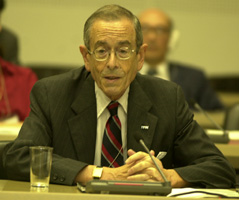 |
|
|
|
|
|
|
Final
Plenary
|
|
Minister
Jan Pronk with Kimo Goree, Director, Reporting Services, IISD
|
| Related Links |
|
|
|
Sustainable Developments home page ~ Linkages home page

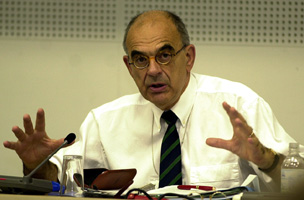 Click
here for photos and RealAudio of opening remarks, Maurice Strong's keynote
address and case study presentations for the Working Groups from Monday,
3 September
Click
here for photos and RealAudio of opening remarks, Maurice Strong's keynote
address and case study presentations for the Working Groups from Monday,
3 September